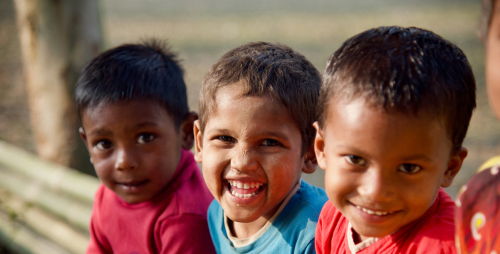Deadline: 15-Jun-21
The Stockholm Environment Institute is calling for concept notes for Gender and Migration in a Changing Climate to foster regional cooperation and policy dialogue for sustainable development and environmental sustainability, through capacity building, knowledge sharing, and increased collaboration.
SCF2 aims to foster regional cooperation and policy dialogue for sustainable development and environmental sustainability, through capacity building, knowledge sharing and increased collaboration.
Human rights and gender equality are central to SCF2, as it champions regional and inter-regional collaboration for transboundary environmental policy development.
SCF2 invites potential partners to submit concept notes for regional environmental policy forums, with focus on four key themes: disaster management and emergency response, agrobiodiversity, air pollution and climate change and freshwater ecosystems
Theme
Gender and Migration in a Changing Climate
Specific focus/priority
This call focuses on the interconnections between climate changes, migration and gender relations in Asia. They welcome events that highlight how intersecting social inequities shape the causes and impacts of human mobility in the context of climate change and that showcase not only the vulnerabilities that marginalized groups face, but also the transformative potential of migration as an adaptation strategy.
Funding Information
A maximum of SEK 450,000 (approximately USD 45,000) will be awarded per grant. The grants can fund one or more events in their entirety or provide supplemental funding to already confirmed co-funded event(s).
Regional Strategic Collaboration
- The thematic call aims to support a regional event and related process that strengthen efforts towards safe and transformative migration by fostering regional partnerships around the interlinked themes of gender and social equality and climate change adaptation in the Asian context.
- Within this broader theme, areas of specific focus can include, but are not limited to, the following sub-topics:
- The role of migration in reshaping gender and other social inequalities
- Gender Based Violence across the migration cycle
- Mobility of people with diverse SOGIESC (Sexual orientation, gender identity expressions and sex characteristics)
- Initiatives, practices and tools that contribute to diminish precarity and abuses for women and marginalized groups in the context of climate change and migration
- Linkages between climate change, migration, gender and modern slavery
- The impacts of COVID-19 on mobility patterns and gender relations within migrant communities
Theme-specific criteria
The successful event proposal will meet the following criteria:
- Provide an inclusive, innovative and safe space for multi-stakeholder engagement: the format should allow meaningful participation of a diverse array of stakeholders, for example migrants, NGOs and civil society groups, researchers, business sector and policymakers. This requires particular considerations for vulnerable groups (i.e., undocumented migrants and victims of abuse) such as consent forms detailing what their participation entails, who will be present at the event, and measures to mitigate the potential risks of their participation (e.g., possibility to not publicize their names or photos, channels to contact organizers in case of concern or abuse etc.). The event should also be designed in consultation with the target audience to ensure the content and format represents their needs and concerns.
- Integrated and context-specific approaches: the event should address issues of climate change, gender and migration in an integrated manner underpinned by human rights, exploring opportunities to address different SDGs priorities in parallel, bearing in mind the particular and differentiated needs of Asian countries and their policy environment.
- Improve access to information and enable leadership capacities of marginalized communities: the event should contribute to raise awareness about existing mechanisms and solutions to address issues related to migration and gender in the context of climate change. It should also aim to identify ways for affected communities to contribute their experience to inform these existing initiatives or support them in setting up new ones that will address their needs.
- Direction for policy influence: the event should aim to target relevant policy processes and include a pathway towards policy influence (i.e., feeding into a larger regional or global platform for action).
Eligibility Criteria
- Interested applicants must send proposal for events on any of the four themes. Proposals should also include a human rights and gender angle, to be considered.
- The following can apply for the grant:
- Nonprofit organizations or networks that based in Asia can apply. Organizations outside the region can be considered if the proposed event addresses issues relevant to Asia and can engage regional stakeholders. They should:
- Have experience in hosting relevant policy dialogues that engage different groups and stakeholders.
- Feature key speakers and participants who are able to share knowledge and experience in environmental sustainability, while addressing cross-cutting issues of gender equality, human rights and poverty.
- Private sector players can apply, if their proposal seeks to engage with the public sector and/or civil society organizations. Funding cannot be used for covering private sector actors’ participation in the supported event (related travel and accommodation expenses). It should, however, be used to increase participation of other stakeholders such as civil society and the public sector. A cost-sharing option for micro and small enterprises with resource constraints can be considered.
- Organizations that are currently Sida’s grantees are not eligible to apply as the lead organization, but can be part of the consortium.
- Nonprofit organizations or networks that based in Asia can apply. Organizations outside the region can be considered if the proposed event addresses issues relevant to Asia and can engage regional stakeholders. They should:
For more information, visit https://cdn.sei.org/wp-content/uploads/2021/05/call-for-concept-notes-gender-migration-and-climate-change.pdf
